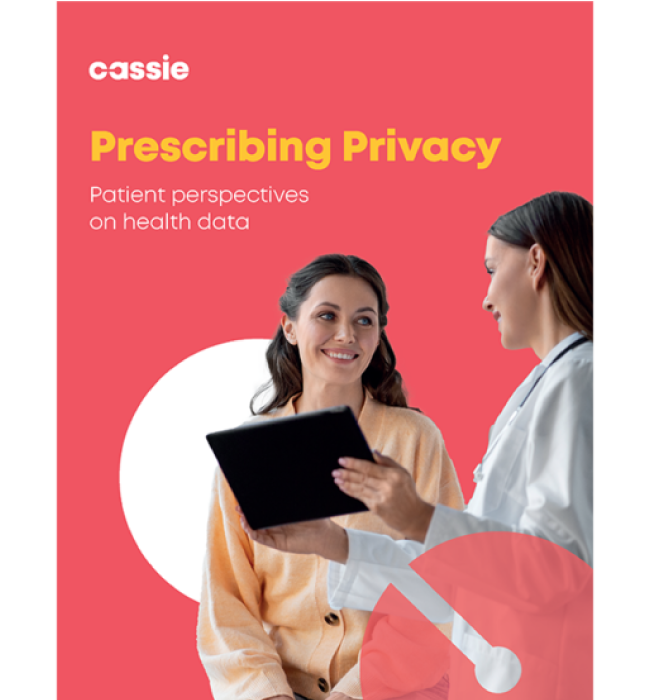Emerging technologies in healthcare
The role of consent management and privacy
Posted: November 14, 2024
Emerging technologies are revolutionizing healthcare, promising significant advances in patient care, operational efficiency, and medical research. However, the true potential of these innovations can only be realized with innovative consent management systems to ensure privacy needs of patients are met within different regulatory environments.
Gartner has published the emerging technologies that healthcare providers need to be on the look out for. Let’s dive into several key points.
Key emerging technologies in healthcare
Generative AI
AI is taking over every technological field, and healthcare is no exception. We could see enhancements and potential in robotic surgeries, autonomous virtual care, and reducing clinical burnout. However, the challenge emerges around safety, security, and privacy. Systems must be in place to ensure the data that is input and output from generative AI is compliant and ethical.
“[Generative] AI systems pose acute privacy and security risks along with their transformative potential because of their vast data requirements and opacity. Generative AI models can be trained on sensitive, multimodal patient data, which could be exploited by malicious actors.” – Generative AI in Medical Practice.
Given the sensitive nature of medical data, there can be dire consequences – not just in data breaches, but also in patients’ trust and the perception of the reliability of medical institutions.
Digital Twins
Digital twins are a virtual representation of an entity, such as an asset, person, or process. These could offer significant transformative impacts in the healthcare industry by creating accurate, real-time digital representations of patients, and enhancing decision-making and management.
The adoption of digital twins does face regulatory hurdles and data quality and availability constraints. Intellectual property requirements vary, with the most transformative applications in patient care needing specialized, healthcare-specific IP due to the complexity of human health.
Some have already noted that the data-driven nature of digital twins requires developers to pay special care to privacy protection. This data would need to be handled with extreme care and understanding of regulations.
Knowledge graphs
Knowledge graphs have significant potential to reveal new insights in healthcare by mapping complex relationships in healthcare data. While it promises substantial enhancements in critical areas like healthcare analytics, the broader impact is more varied. Primarily, integration into existing systems involves substantial governance challenges.
Human-Centered AI (HCAI)
HCAI is a common AI design principle calling for AI to benefit people and society. This can enhance clinician experiences and foster patient trust in AI solutions in healthcare. However, broad governance is required across numerous applications, potentially extending to regulatory mandates. Navigating ethical and legal considerations, including privacy and malpractice concerns, requires specialized IP.
While human-centered AI will alleviate concerns around bias, there are other ethical dimensions, such as data privacy and security. AI systems that are not developed with security in mind can be vulnerable to cyberattacks, which can compromise sensitive patient data and potentially harm patients.
Smart spaces
Smart spaces are physical or digital environments in which humans and technology-enabled systems interact in increasingly open, connected, coordinated, and intelligent ecosystems. Within healthcare, the potential lies in enhancing operational efficiency and patient care in critical areas, like ICUs and surgical theatres.
However, while the industry shows readiness to adopt smart spaces, integration involves substantial challenges with aligning new technologies with existing care delivery processes and electronic health record (EHR) systems.
The importance of Consent Management with new healthcare technologies
While these technologies hold immense promise, their successful implementation hinges on effective consent management. Here’s why:
Data privacy and security
Patients need to have control over who accesses their data and for what purpose. Granular consent mechanisms ensure that data is used ethically and legally, fostering trust and compliance with regulations.
Patient autonomy
Technologies like blockchain can provide decentralized identity management, giving patients more control over their personal information. This enhances patient autonomy and engagement.
Regulatory compliance
As regulations evolve, consent management systems must adapt to ensure ongoing compliance. Dynamic consent models allow for real-time updates to consent preferences, keeping pace with regulatory changes.
Interoperability and integration
For technologies like digital twins and knowledge graphs to be effective, they must integrate seamlessly with existing systems. Standardized consent protocols facilitate this integration, ensuring that data flows smoothly across platforms while respecting patient preferences.
Emerging technologies in healthcare are poised to transform the industry, but their full potential can only be realized with innovative and granular consent management systems. By prioritizing patient autonomy, data privacy, and regulatory compliance, healthcare providers can harness these technologies to deliver better outcomes and build trust with patients. This approach ensures that while we celebrate advancements in healthcare technology, we also emphasize the critical role of consent management working in tandem.

Read our Prescribing privacy: Patient health data research report
We spoke directly to US consumers in order to delve into the heart of consumer trust and confidence in the healthcare system’s ability to protect and uphold data, as well as attitudes toward their own understanding of healthcare data privacy…
- Factors that influence perceptions of healthcare providers’ commitment to safeguarding their data privacy
- How data breaches in the news impact their feelings
- How they evaluate a healthcare provider for data security
- Actions healthcare organizations can take to fortify trust while navigating the intricacies of data privacy

